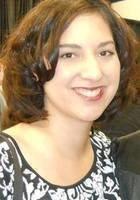Connect with hundreds of tutors like Coral
Who needs tutoring?
FEATURED BY
TUTORS FROM
- YaleUniversity
- PrincetonUniversity
- StanfordUniversity
- CornellUniversity

Coral
About Me
I'm a graduate of Elon University in North Carolina. I studied international relations with an emphasis in Latin American studies. While in college, I was lucky enough to travel to 7 countries, and I have a huge appreciation for culture, travel and taking photographs along the way. After graduation, I taught ESL to high school students, helped start an education non-profit, and coordinated tutoring efforts for Title I low income schools for the Tucson region. When I returned to Texas, I worked with a local community college in the college access field to prepare students for college. I was a substitute for a bit, but now I am currently a certified 6th grade bilingual teacher in North Texas. I have taught in public schools for going on three years, teaching English/Spanish language arts, and now I'll be moving onto teaching math. I have been a tutor since I was a teen volunteer and have tutored Math, Spanish, and test prep. My teaching style is very easy-going! I want to make a personal connection with my students to understand what they like and how they think. I try to tie these all together with content to teach concepts and connect them to the real world, which is the point of education. In my opinion, education is needed to understand and make sense of our surroundings. I think my job as a teacher is to make education fun and relevant-not just something you have to memorize for a test and never remember again. Education is meant to impact lives and change them for the better! My family is from Puerto Rico, and I have been speaking Spanish my entire life. I have a dog and his name is Mo and he is the love of my life :-). I love to travel, be with my close friends and family and DANCE. I love working with students and have taught and tutored from 4th grade through college. I look forward to working with you and helping you be successful in school.
Education & Certifications
Q&A with Coral
Tutoring Subjects
Connect with a tutor like Coral
Connect with a tutor like Coral
Tutors with Similar Experience

Spencer
10+ YearsBrigham Young University-Provo
Bachelor in Arts, International Relations & Russian
View Profile
